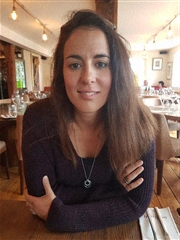Tutor HuntResources French Resources
One Of The Fundamental Keys To Mastering French..
The different possible "versions" of a verb and the way this affects grammar.
Date : 23/02/2022
I have always been fascinated by language and remember
eagerly awaiting my French and German classes at school. From the very beginning, German seemed to be a logical
language, with clear rules that just needed to be learnt and applied.French, however, always seemed illogical and confusing to
me, with du , des , aux , la (among others) thrown it at random! As much
as I enjoyed learning it, I could never fully understand its construction.I now realise why. The key to mastering French, is, in my opinion,
rather simple.When you learn a verb in French, make sure that you learn
the whole verb. This concept is rarely addressed in textbooks and grammar
books and will make all the difference to the speed at which you can progress.If I had been asked at school what the verb to discuss
was, I would have answered (rather proudly!) discuter .In fact, the whole verb is discuter de quelque chose = to
discuss something.This shows that the verb (otherwise known as the infinitive
i.e discuter ), is always followed by the preposition de . As tempting as it may be, this de cannot be ignored! Let s translate a sentence that demonstrates this point. We are discussing the situation .Most people learning French would translate this sentence as
follows nous discutons la situation . If we now look at the whole verb and take all parts of it
into account, then the answer must be - nous discutons de la situation .NOTE: when a de meets a feminine noun e.g la situation ,
it remains de la . (de + la = de la) Let s now look at another example. They are taking part in the show .The whole verb to take part in = participer
quelque chose.This means that the infinitive participer is always
followed by the preposition .The answer, therefore, is ils participent au
spectacle . NOTE: when an meets a masculine noun, e.g le
spectacle , it becomes au .( + le = au) Here are just a few examples of how a verb can vary in
appearance and questions that need to be asked.Is the verb reflexive?
e.g se promenerIs the verb reflexive AND followed by a preposition
e.g se souvenir de quelque chose/quelqu unIs the verb followed by a preposition? e.g participer quelque
chose, compter sur quelqu unOr, is the verb, simple , as I choose to call it,
e.g manger quelque chose, voir quelque chose.
In each case, the verb is not followed by a preposition, hence, simple . Remember, there can be many versions of a verb.Let s look at the verb to want in English.
We have:To want something vouloir quelque chose
To want someone vouloir quelqu`un
To want to do something vouloir faire quelque chose
To want someone to do something vouloir que quelqu`un fasse quelque chose
This principle applies to the French language. Most people just learn vouloir and think that is a verb in the bag. Unfortunately, this won t be enough to help you, as you progress in French.My best piece of advice, if you wish to achieve a good level of spoken and written French is this:Make sure that when you learn a verb, you learn THE WHOLE VERB.In my opinion, this is the KEY to mastering the French language.
In each case, the verb is not followed by a preposition, hence, simple . Remember, there can be many versions of a verb.Let s look at the verb to want in English.
We have:To want something vouloir quelque chose
To want someone vouloir quelqu`un
To want to do something vouloir faire quelque chose
To want someone to do something vouloir que quelqu`un fasse quelque chose
This principle applies to the French language. Most people just learn vouloir and think that is a verb in the bag. Unfortunately, this won t be enough to help you, as you progress in French.My best piece of advice, if you wish to achieve a good level of spoken and written French is this:Make sure that when you learn a verb, you learn THE WHOLE VERB.In my opinion, this is the KEY to mastering the French language.
This resource was uploaded by: Lucy

